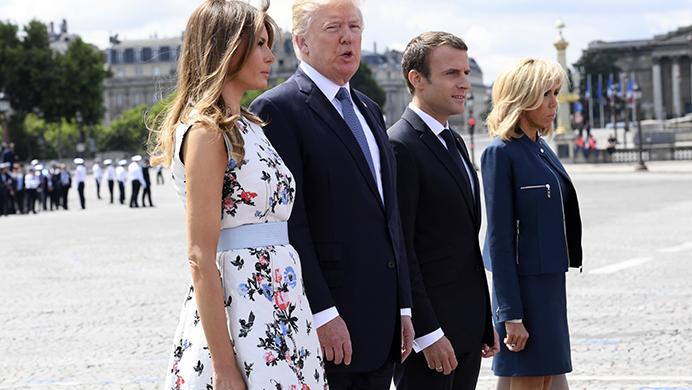“I am worried about Trump, what he will do to the world?” Pierre said to me. Pierre is a French pediatrician whom I’d chat for class at a local bar in Pau, France. It was the fall of 2016, just after the election. Pierre still sends me an email now and then. Those evenings that we shared sipping beers and talking politics feel distant and unreal.
When you spend a semester abroad during a U.S. presidential election, you’ll be asked plenty of questions on where you stand and what you think of the candidates. Before the election, French folks couldn’t hold back a sly smile when they asked whom I’d support. Even then, Trump was a joke. And then he won. Their amusement turned quickly to concern. Pierre shared this concern, too.
He was also concerned about the then-upcoming French elections. Lucky for him, his countrymen rejected the far-right, Putin-aided nationalist candidate Marine Le Pen in favor of newcomer centrist candidate Emmanuel Macron. President Trump’s and Macron’s ideologies share little, and their relationship began on an awkward note: Trump brazenly endorsed Le Pen. He didn’t think through the consequences of her loss, a lack of forethought characteristic of this administration.
As always, Trump didn’t try to mend the relationship but doubled down. He criticized two organizations in which France is a key member, the EU and NATO. Trump’s casting of doubt on institutions constructed to counter Russian influence, such as NATO, is especially troublesome today, when Russia continues to meddle in elections throughout NATO countries. Both France and the U.S. fell victim to Russian cyber attacks in the last election cycle and will undoubtedly be attacked again.
And then Trump pulled the U.S. out of the Paris Climate Accords, something that frustrated Parisians (and the rest of Europe).
In general, Trump seems to lack an understanding of why the EU is an important partner of the U.S. The EU has the largest GDP in the world and is one of our biggest trading and military partners. Its success is linked to our success and vice versa.
Trump’s relationship with Europe has been a mess. So when Macron gave a flashy, warm reception to him last week, it seemed a little out of place. These are two men who have handshake grappled, who sit opposite each other on a number of issues, including globalism, Russia, and climate change. Yet they held chummy joint conferences, double-dated in the Eiffel Tower, and shared front seats at the military parade down the Champs-Elysée.
Macron is thinking strategically, appealing to Trump’s well-known narcissism and ego. He hopes to soften Trump on climate change, strengthen NATO ties, and ensure cooperative trade between the U.S. and the EU. He is fighting for a positive relationship between Europe and the U.S.
I can’t say that he’ll be successful. No one can. You can flatter Trump all you want, but his self-obsession leaves him erratic; his whims change with every perceived or invented slight. Diplomacy dissolves in the face of irrational, undisciplined leaders.



